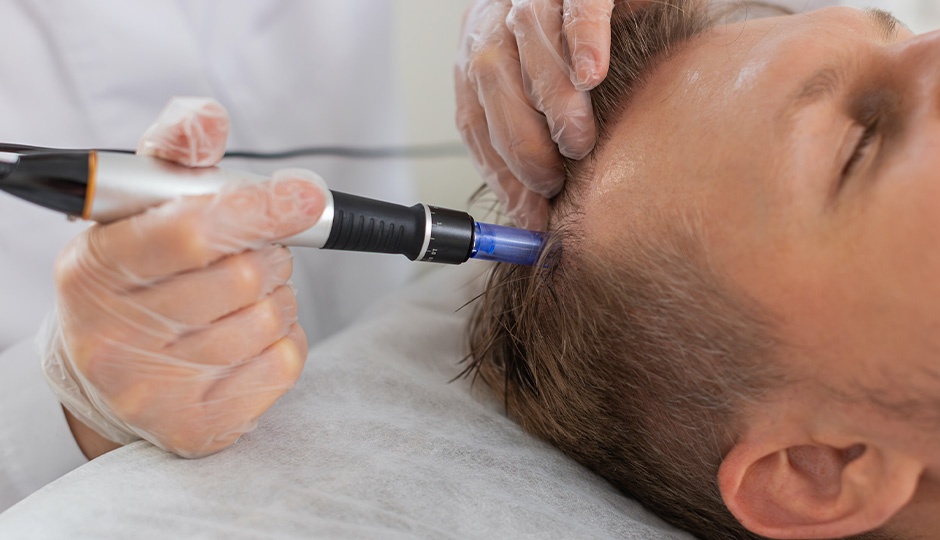What is the connection between stress and hair loss? It is often one of the topics we mention here as being a cause of hair loss, and yet it is one of the most difficult conditions to manage. Everyone deals with stress at different levels. That stress can bring on a wide range of complications in daily life, and it is those complications that often lead to hair loss. If you are like many people who have stress and you are noticing hair thinning or significant hair loss, do not overlook this connection. The good news is that finding relief from stress may also help you to restore hair growth.
How Is Stress Related to Hair Loss?
There are several ways that stress can relate directly to hair loss. In each of these ways, there is a chemical process that takes place that causes an increased risk of hair loss.
Telogen Effluvium
This is one of the most common reasons that people have excess hair shedding from stress. Telogen effluvium is a condition in which a significant amount of stress causes a large number of hair follicles to enter into the resting phase of hair growth. While these hairs may have entered the resting phase over some period of time, instead, it happens all at one time, leading to a more sizable amount of hair loss. It is often much more noticeable because of this.
Most of the time, the affected hair will fall out suddenly if this is the case. Then, it should begin to regrow and be replaced within a few months. Most of the time, you may notice this type of hair loss happening all at once – for example, you notice a large amount falling out when brushing your hair or washing your hair.
Alopecia Areata
Another condition that is typically brought on by stress is alopecia areata. This condition is thought to be brought on by a wide range of factors. This condition may be an autoimmune condition as well. That, coupled with stress, can lead to a significant amount of hair loss. This condition often occurs when the immune system attacks the hair follicles. This leads to hair loss.
It is not fully understood why autoimmune conditions like this happen and why the body attacks itself. However, it is believed that sudden or significant stress can be a factor in why this occurs. In most cases, alopecia areata will improve over time as the hair goes through the resting phase. However, the process can take some time to improve. Those with this condition tend to lose patches of hair in various areas, and it can happen throughout the body.
Trichotillomania
Some people have trichotillomania. This condition involved the unavoidable urge to pull hair out of the scalp. In some situations, when a person is under stress or anxious, they may feel the need to pull on their hair, sometimes one by one, pulling them out of the scalp. This may include the scalp as well as hair on other areas of the body, including the eyebrows.
Hair pulling like this can help some people feel a significant amount of release and relaxation as it is done, helping them feel better when facing stress. However, pulling hair as a way to deal with uncomfortable feelings, including stress, is not healthy. It can also damage the hair follicles enough that it can lead to permanent hair loss. This type of stress-related hair loss is typically related to emotional stress such as tension, loneliness, frustration, fear, anxiety, or boredom.
What Can You Do If Stress Is Behind Your Hair Loss?
If you are facing stress as an underlying cause of your hair loss, that may mean that reducing those stress levels can cause significant improvement. The problem is that often, that stress is not as easy to remove as it may seem. It is critical for many men and women to find ways to improve stress levels for all types of health reasons – not just hair loss but also to improve quality of life and overall health.
Finding a way to manage and mitigate stress may be the best thing you can do to improve your overall health and thinning hair. To learn more, contact the team at Unique Hair Concepts.






